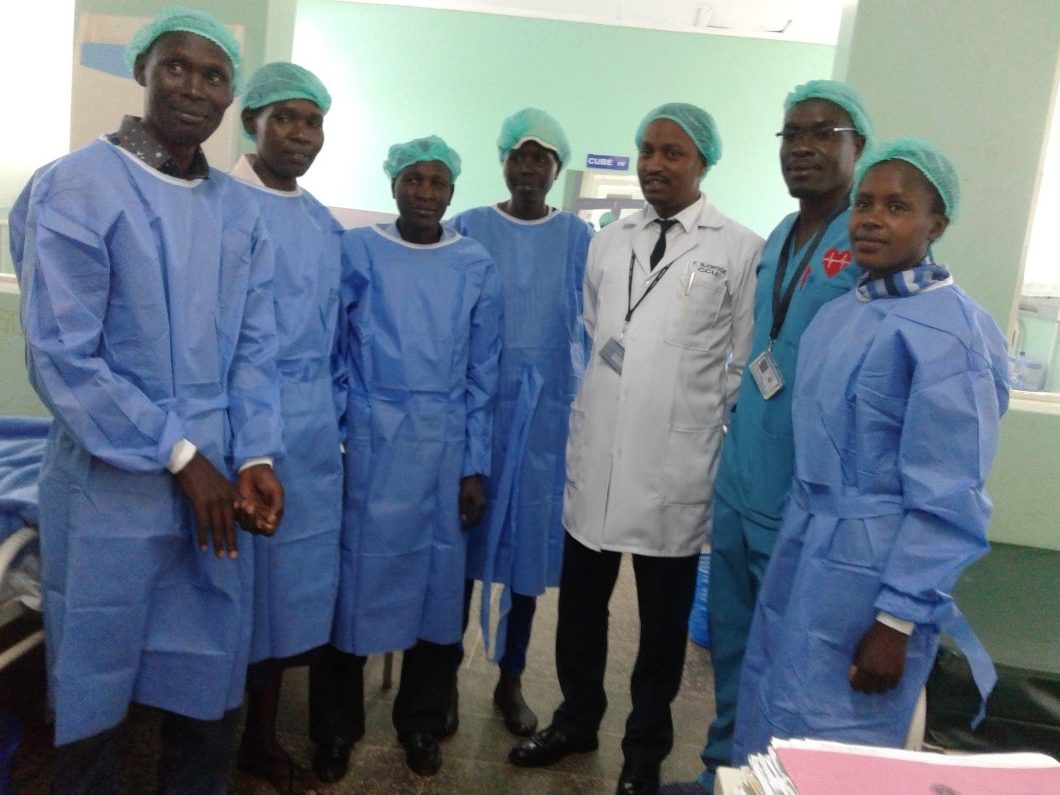Full disclosure. I am nurse. A proud nurse. I am a nurse because the strongest, kindest, and most adventurous women I knew when I was growing up were nurses. And throughout the course of my nursing career, I have been repeatedly reminded that nurses are privileged to experience some of the most distressing times in a person’s life alongside them – and to expertly help them through it.
My love for my chosen profession is one of the reasons I celebrate the World Health Organization declaring 2020 The Year of the Nurse and Midwife. This official recognition of the pivotal role that nurses, around the globe, have in creating healthier lives for all people regardless of their age, sex, or social status. As countries and health care rapidly evolved during the 20th-21st centuries, fewer people died from maternal and child illness and infectious diseases and today cardiovascular disease is one of the biggest killers of adults around the globe. The type of cardiovascular disease varies in different global settings- we see more ischemic heart disease in more developed countries and more hypertensive heart disease and cardiomyopathies in low income countries. Yet, despite the differing types of cardiovascular disease, in every corner of the globe nurses are helping people prevent, manage, and recover from cardiovascular disease.
There are more than 12 million cardiovascular nurses around the globe making them the largest discipline promoting cardiovascular health. Decades of evidence demonstrate that nurses have a critical role in promoting high-quality, cost effective care to improve cardiovascular health. As Leonie Rose Bovino, PhD, APRN, FAHA – Nurse Practitioner at Yale New Haven Hospital Outpatient Cardiology – states “Much of the premature cardiovascular morality is due to modifiable factors and nurses excel at building a rapport and establishing shared decision-making with patients about their health. This allows them to have an integral, immense and important role in decreasing CVD mortality.”

Nurses and nurse practitioners use this rapport to manage hypertension and high cholesterol; provide smoking cessation, diabetes and nutrition counselling; facilitate patients completing cardiac rehabilitation; and help manage the distressing symptoms of heart failure. And when nothing more can be done, nurses are there to help patients die with the comfort and dignity they deserve—holding hands, crying with family, and comforting those who don’t know what tomorrow will bring.
Francis Njoroge (pictured left) is the Nursing Officer-in-Charge at the Cardiac Care Unit at the Moi Teaching & Referral Hospital in Eldoret, Kenya. He provides care to patients with rheumatic heart disease, infective endocarditis, and heart failure. He helps them understand how to prevent complications from these conditions, conducts home visits after their discharge, and counsels both patients and their family members about their “ongoing disease process, adherence to medication, dietary habits and lifestyle modification”. Like Dr. Rose Bovino, Francis’ role as a nurse and a leader is big and diverse, and sometimes complicated by familiar challenges – patients being unable to buy necessary medicines, high acuity patients, not enough time with patients, and too few hospital beds. But despite these challenges, Francis and Dr. Rose Bovino chose their profession because they wanted a challenging career – one that would allow them to make a difference in people’s daily lives and, themselves, to be changed by the patients and their own stories. Asked what he wants young people to know about nursing, Francis states, “Nursing is a career that helps a person save lives, brings happiness to individuals and their families, and comfort to those in need. Despite being a challenging job, it’s very interesting and makes a difference in people’s lives. I would encourage young people to join us, and join nurses everywhere, in making a difference in their own communities”.
Many of the readers of this blog will be nurses, and many will not. But no matter what your profession is, chances are you know a nurse. So this year, ask the nurses you know about their stories. Why did they choose nursing? Why do they continue to be a nurse? What would make it easier for them to provide the best quality nursing care possible? Listen to them. Let their stories change how you think about your own health, or your work, or your relationships. Let them inspire you to be stronger, kinder, bolder, and seek out adventure in your right. Because when we recognize the pivotal role that nurses have in our community, we recognize the best of all of us. And I hope that recognition lasts long after the Year of Nurse and Midwife concludes.
The views, opinions and positions expressed within this blog are those of the author(s) alone and do not represent those of the American Heart Association. The accuracy, completeness and validity of any statements made within this article are not guaranteed. We accept no liability for any errors, omissions or representations. The copyright of this content belongs to the author and any liability with regards to infringement of intellectual property rights remains with them. The Early Career Voice blog is not intended to provide medical advice or treatment. Only your healthcare provider can provide that. The American Heart Association recommends that you consult your healthcare provider regarding your personal health matters. If you think you are having a heart attack, stroke or another emergency, please call 911 immediately.